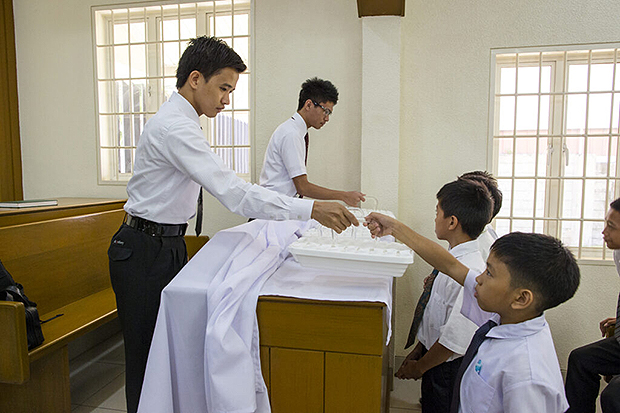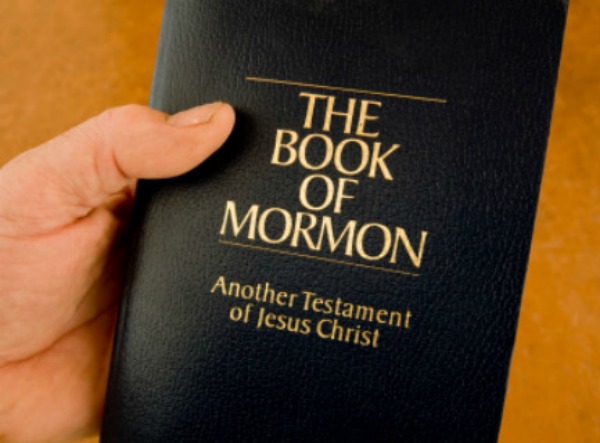Question
Gramps,
I have a question about women and the priesthood. A friend has posted her distaste for a recent quote that came out regarding women and priesthood power. The comments were crazy, to say the least, stuff about equality and power and patriarchy.
One sister answered a question about changes we can make to ensure we are equal and one of the things she mentioned was having young women pass the sacrament. I have searched but how is it different between men and women? Why can they pass?
Ruth
Answer
Hi, Ruth.
May you ever be a shining light as was your namesake.
This is a very good question. And the answer may not be as clear as we would like. But I’ll do my best to share my interpretation.
The guidance we have from modern revelation states:
The priest’s duty is to preach, teach, expound, exhort, and baptize, and administer the sacrament, — D&C 20:46
And we note the duties of a deacon further down the page:
57 [The teacher] is to be assisted always, in all his duties in the church, by the deacons, if occasion requires.
58 But neither teachers nor deacons have authority to baptize, administer the sacrament, or lay on hands;
— IBID
So, it is interesting that the scriptures say that the teachers and deacons do not have authority to administer the sacrament. Yet we seem to think they do. Why is that?
As it is spoken of in verse 58, the word administer would only apply to the blessing of the sacrament, not the serving of it. So, if it is not specifically outlined in the scriptures, why is it a specific duty for deacons and teachers? Why can’t women serve the platters as deacons do?
The fact is that in another time and another place, it may be allowable for women to serve the sacrament. For example, I doubt anyone would raise a fuss if a sister seated in one of the long rows stood up to pass the sacrament to a person seated on the other end of the pew. That’s physically the same thing as a deacon handing it to the first person at the end of a pew.
Pres Heber J Grant wrote to a mission president on the topic in 1928:
There is no rule in the Church that requires that only priesthood bearers can carry the sacrament to the congregation after it is blessed. While it is custom, it would in no wise invalidate the ordinance if it were performed by any other worthy saints in the absence of ordained boys. — paraphrased.
However the prevailing wisdom is that the formal serving of the sacrament is used by the Lord’s Church to train young men to honor their priesthood. One day they will be the ones sitting behind the table instead of standing in front of it. They need to understand what that prayer means for understanding their duties to that prayer, or in administering it. So, they have a training period where they specifically learn to participate in a priesthood responsibility with dignity and respect. This is especially important nowadays when young men have precious few opportunities to respect and honor sacred things.
So the passing of the sacrament, as deacons do, was not specifically prescribed as a “priesthood only” function to pass the sacrament. But our current practice is to allow young men to learn what priesthood responsibilities are.
Why the sacrament? This goes back to the original meaning of the word “deacon.” The Greek word for deacon (δῐήκονος /diakonos) means a servant – specifically one who helps those obtain basic living (food, clothing). In fact, in a non-ecclesiastical sense, it is synonymous with “server/waiter.” So, if you wait on tables (or pews) you’re a deacon as a waiter would bring the food from the kitchen to the table. You’re not the waiter if you’re just passing a platter around the table.
But in the context of serving the sacrament, we see that the physical is emblematic of the spiritual. The deacon is serving the bread of life and the living water of Christ as our spiritual sustenance. I can’t think of a more appropriate duty for a deacon, in the truest sense of the word.
—–
Now to your last question. What is the difference between men and women to the point that men have priesthood responsibilities where women don’t?
For that answer, I’ll give you my personal take rather than revealed word. So, if you’re ok with a personal opinion, then I’ll feel free to make my remarks. It has been my personal experience in the many cycles around the solar system that men and women have very different dispositions when it comes to duties and sacred things.
It is the nature and disposition of almost all women to want to participate in everything. They are willing to do what they need to do, certainly. But they WANT to participate in EVERYTHING.
It is the nature and disposition of almost all men to look for what is needed and only participate in those roles where they can actually fill the voids. They need to feel like they’re going to make a difference. If something already seems to be taken care of, why bother? In fact, they may not even consider them important. If someone else has it, then they got it. They don’t need me.
So, women see that the priesthood is already being served by men/boys and wonder why they can’t do that. They long for the sacrament and understand how important it is. They wish they could do that themselves.
If roles were reversed, men would see women filling all these roles and be thankful that they (men) don’t need to do that. And they wouldn’t even bother to consider the sacred nature of it. The ordinance would be lost on them.
And finally…
If young women really want to help with assigned tasks that aren’t necessarily “priesthood duties,” I’d ask them to also help with the following:
- Put up all the chairs after a big meeting
- Help people move in or out of the ward
- Take all the trash out of the church every week
- Cut wood for people who don’t have a chainsaw
- Mow & edge people’s lawns
- Get rid of all the junk in people’s backyards and garages
- Launder the sacrament cloths
- Polish the sacrament trays
- Usher at sacrament meetings
- Any heavy hauling
Let them know that I’ll look forward to seeing them at the next service project.
— Gramps







